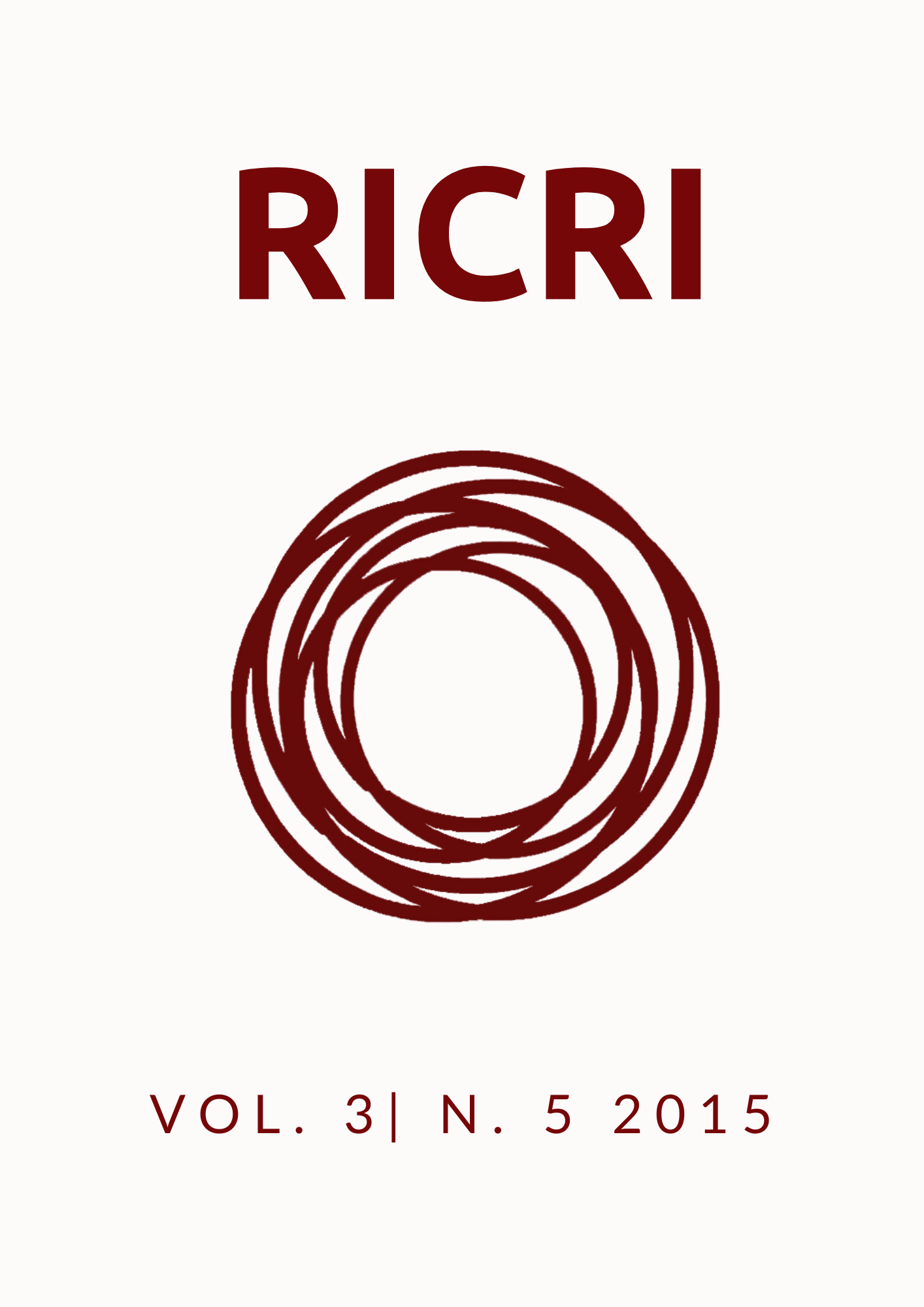A Organização do Tratado do Atlântico Norte (OTAN) e os novos desafios da segurança internacional no Pós-Guerra Fria: reconfiguração e alargamento
Abstract
A sociedade internacional se encontra, neste século, envolta em instabilidades no tangente à segurança internacional. Os debates sobre as instituições, normas e influência do Estado Moderno estão no olho do furacão do Sistema Internacional. O que põe em xeque não só as relações entre os Estados-nação, mas toda a sociedade internacional, em algum modo, e a constituição da segurança coletiva. A partir destes princípios lançamos um olhar para a Ucrânia, com o intuito de analisar até que ponto o alargamento da Organização do Tratado do Atlântico Norte (OTAN), no pós-Guerra Fria, a Estados centrais no xadrez internacional, vem se traduzindo num braço armado do soft power europeu, ou parte do modus operandi das questões de segurança nacional americanas. Dentro desta continua fluidez da estrutura da OTAN indica uma mutação do paradigma westfaliano, no mundo globalizado, seguida da reinterpretação da segurança coletiva ao invadir sui generis o espaço vital russo, ameaçando retomar os tempos conflituosos das Grandes Guerras.
Downloads
References
BRZEZINSKI, Zbigniew. NATO and World Security. 2009. Disponível em: http://www.eurodialogue.eu/energy-security/NATO-and-World-Security. Acesso em: 25 out. 2015.
CENTRAL INTELLIGENCE AGENCY (CIA). Factbook of CIA. Disponível em: https://www.cia.gov/library/publications/the-world-factbook/geos/up.html. Acesso em 26 de out. de 2015.
COSTA, Darc. O Futuro da OTAN. In: Segurança Internacional – perspectivas brasileiras. São Paulo: FGV Editora, 2010, p. 547-560.
COSTA, Rogério Santos da. A falência do sistema de segurança coletiva e suas implicações para processos de integração. In: IV FOMERCO, 2003, Maringá.
DEFENSE NEWS (2015). Russian Official: NATO Eastward Expansion Would Be 'Catastrophic'. Disponível em: http://www.defensenews.com/story/defense/international/europe/2015/07/28/russian-official-nato-eastward-expansion-catastrophic/30810549/. Acesso em: 24 out. 2015.
DEMPSEY, Judy. Who’s Afraid of NATO Enlargement? 2015. Disponível em: http://carnegieeurope.eu/strategiceurope/?fa=60945. Acesso em: 24 out. 2015.
DIEZ DE VELASCO, Manuel. Las organizaciones internacionales. 11. ed. Madrid: Tecnos, 1999.
FEDERATION OF AMERICAN SCIENTISTS (1995). Study on NATO Enlargement. Disponível em: http://fas.org/man/nato/natodocs/enl-9501.htm. Acesso em: 25 out. 2015.
FRIIS, Karsten. Nato Enlargement – Back on the Agenda. Policy Brief, 2015.
GABINETE DE DOCUMENTAÇÃO E DIREITO COMPARADO DE PORTUGAL. Carta das Nações Unidas. In: Direitos Humanos: instrumentos e textos universais. Disponível em: http://www.gddc.pt/direitos-humanos/textos-internacionais-dh/tidhuniversais/onu-carta.html. Acesso em: 25 out. 2015.
GADDIS, John Lewis. History, Grand Strategy and NATO Enlargement. Survival, vol. 40, no. I, Spring 1998, pp. 145-51.
HORNBERGER, Jacob. NATO Should Have Been Dissolved at End of Cold War. 2015. Disponível em: http://sputniknews.com/analysis/20150401/1020333567.html. Acesso em: 26 out. 2015.
NORTH ATLANTIC TREATY ORGANIZATION (2015). Enlargement. Disponível em: http://www.nato.int/cps/en/natolive/topics_49212.htm. Acesso em: 22 out. 2015.
NORTH ATLANTIC TREATY ORGANIZATION (2014). NATO Enlargement and Russia: myths and realities. Disponível em: http://www.nato.int/docu/review/2014/Russia-Ukraine-Nato-crisis/Nato-enlargement-Russia/PT/index.htm. Acesso em: 25 out. 2015.
NORTH ATLANTIC TREATY ORGANIZATION (NATO). Nato Handbook. Disponível em: http://www.nato.int/docu/handbook/2001/index.htm. Acesso em: 25 out. 2015.
______. Nato Review, verão 2004. Disponível em: <http://www.nato.int/docu/review/2004/issue1/english/statistics.html>. Acesso em: 25 out. 2015.
______. The NATO documentation: 50th anniversary edition - 1949-1999. Brussels, Belgium: NATO, 1999a.
______. The NATO handbook: 50th anniversary edition -1949-1999. Brussels, Belgium: NATO, 1999b.
PRIDHAM, Geoffrey. NATO needs feet on the ground to curb Russian ambitions in the Baltic States. 2015. Disponível em: https://www.chathamhouse.org/publication/twt/time-bolster-baltic-states. Acesso em: 24 out. 2015.
RAUCHHAUS, Robert W. Explaining NATO Enlargement. Contemporary Security Policy, 2007.
SEINTENFUS, Ricardo. Organização do Tratado do Atlântico Norte. In: Manual das Organizações Internacionais. Porto Alegre: Livraria do Advogado, 2008, p. 327-332.
STOLTENBERG, Jens. Speech by NATO Secretary General Jens Stoltenberg at the Munich Security Conference. NATO Press Office. 6 de Fevereiro de 2015. Disponível em: http://www.nato.int/cps/en/natohq/opinions_117320.htm?utm_medium=email&utm_campaign=NATO+News+-+Secretary+General+Situation+in+Ukraine+is+critical+NATO+supports+peace+efforts&utm_content=NATO+News. Acesso em 26 de out. de 2015.
VERSHBOW, Alexander. Prospects for NATO-Russia Relations. NATO Press Office. 2 de Fevereiro de 2015. Disponível em: http://www.nato.int/cps/en/natohq/opinions_117055.htm?utm_medium=email&utm_campaign=NATO+%20News+-+Deputy+Secretary+General+Russias+aggression+is+a+game-%20changer+in+European+security&utm_content=NATO+News. Acesso em 26 de out. de 2015.
Downloads
Published
How to Cite
Issue
Section
License
Authors who publish with this journal agree to the following terms:
a. Authors retain copyright and grant the journal right of first publication with the work simultaneously licensed under a Creative Commons Attribution License that allows for sharing of work with acknowledgment of its initial publication in this journal.
b. Authors are able to take on additional contracts separately for non-exclusive distribution of the version of the work published in this journal (e.g., post it to an institutional repository or as a book), with an acknowledgment of its initial publication in this journal.
c. Authors are permitted and encouraged to post their work online ( eg, in institutional repositories or on their website) at any point before or during the submission process, as it can lead to productive exchanges , as well as increase the impact and citation of published work ( See the Effect of Open Access).




